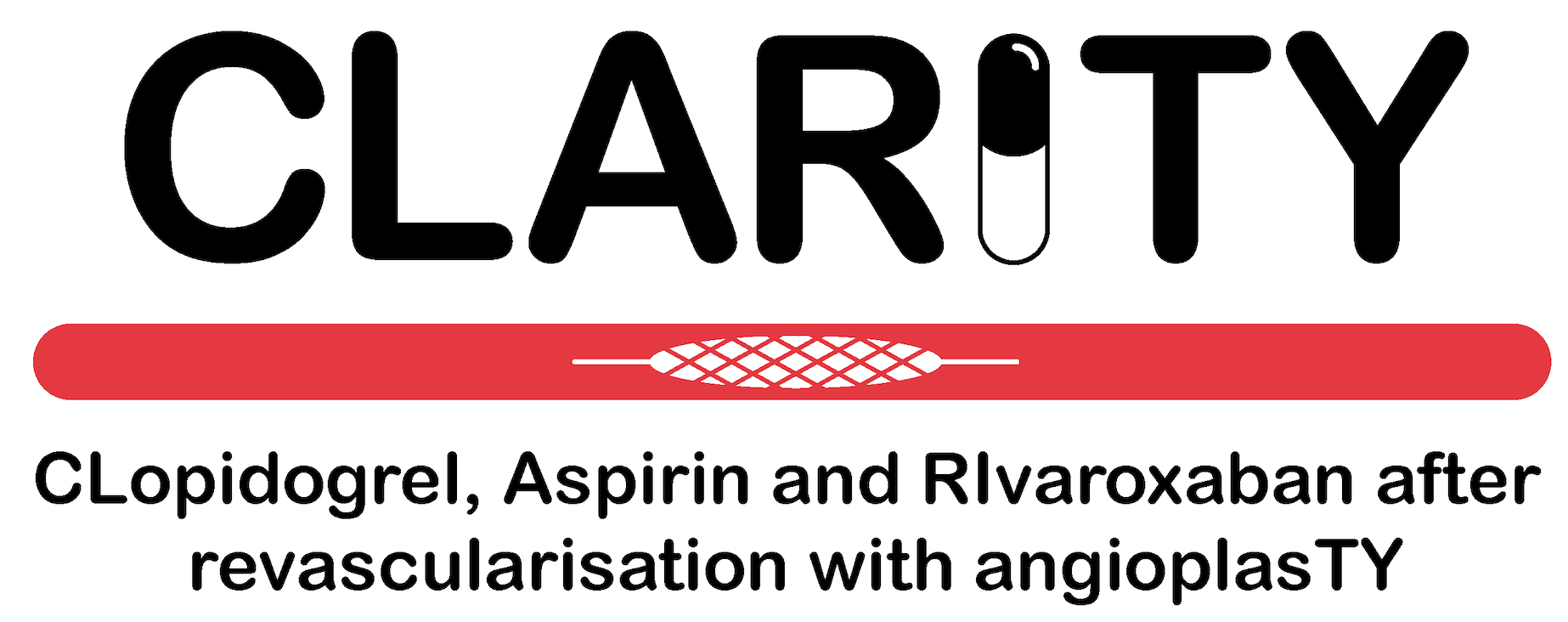Improving Lives Through Research for Vascular Disease and Pain Management: CLARITY and PLACEMENT Trials
20 September 2024
– by Grace Young, Waku Maboshe and Cherry-Ann Waldron
September is pain awareness month, peripheral arterial disease (PAD) awareness month and vascular disease awareness. The number of adults with age-related chronic diseases, including PAD/vascular disease, is increasing worldwide. Similarly, the number of adults who undergo revascularisation or amputation surgery for PAD/vascular disease in the UK is increasing each year. The Infection, Inflammation and Immunity (I3) Division of the Centre for Trials Research has a research theme that covers vascular research and is fully coordinating two major trials to improve health outcomes of patients with PAD/vascular disease. The Perineural Local Anaesthetic Catheter After Major Lower Limb Amputation Trial (PLACEMENT) has been designed to compare postoperative pain in two groups of people undergoing leg amputation surgery for PAD/vascular disease. The CLopidogrel, Aspirin and RIvaroxaban after revascularisation with angioplasTY (CLARITY) trial has been designed to compare the effects of three different combinations of blood-thinning tablets on health outcomes after angioplasty.
PLACEMENT

650 patients with planned leg amputations for PAD, vascular disease, diabetes, or acute/chronic infection will be recruited from ~20 UK NHS sites, including eight lead sites. Cardiff and Vale University Health Board is the lead site, with their Principal Investigator, David Bosanquet, also the Chief Investigator of the trial. The seven other lead sites include Bristol, Swansea, Imperial, Leicester, Newcastle, Hull and Cambridge. Three new sites have also been activated for recruitment in Liverpool, Basildon, and St George’s in London. All active sites have randomised participants, contributing to the current total of 118 randomised participants (as of 5th September 2024) with Bristol and Hull currently the joint highest recruiting sites each with 26 randomised participants. Two other sites in Norfolk and Manchester have had their site initiation visits and are due to be activated shortly, with another site in Bournemouth having their site initiation visit in October. A further six sites in Belfast, Lancashire, Nottingham, Oxford, Glasgow and Derby are in site set-up.
At the time of their leg amputation surgery, participants will be randomised to either receive a perineural nerve catheter (PNC) or not. A PNC is a thin plastic tube, placed next to the main leg nerve which is cut during amputation surgery. Participants randomised to receive the PNC will have a local anaesthetic infused for the first five days after leg amputation surgery. All participants will receive additional pain-management medications as required. The primary aim of PLACEMENT is to evaluate if the use of a PNC with continuous local anaesthetic infusion, affects the amount of pain participants experience, compared to no PNC. Secondary aims include assessing the effect of PNC use on participant satisfaction of pain management, and recovery at 3 and 6 months, including chronic pain, wound healing, quality of life, time to achieve prosthesis fitting and level of independence.
“Amputation surgery is not only a life changing experience for patients, it can also be a very painful one, both in the short and long term. How to reduce pain after amputation has been highlighted as a research priority for both patients, carers and clinicians. We hope PLACEMENT can provide robust data to help patients experience less pain after their amputation, so they can recover quicker and better.” Mr David Bosanquet, Consultant Vascular Surgeon, PLACEMENT Chief Investigator.
PLACEMENT included an eight-month internal pilot which ended in June 2024 and has been recommended to proceed to full trial. The PLACEMENT team are aiming to publish lessons learned from the internal pilot, along with a protocol paper in the next 12 months. To find out more about PLACEMENT please contact: Dr Grace Young, PLACEMENT-Trial@cardiff.ac.uk
CLARITY

The CLARITY trial began the set-up phase in January 2024 and achieved a significant milestone in August 2024 by securing regulatory approvals. This trial will involve approximately 20 vascular units in NHS trusts across the UK, aiming to recruit 1,239 participants over three years. The recruitment phase is anticipated to begin in November 2024, with eight lead sites spearheading the effort, including the North Bristol NHS Trust, where the Chief Investigator (CI), Mr Christopher Twine, is based. Recruitment will initiate a nine-month internal pilot phase, before progressing to the full trial upon meeting specified criteria.
Participants diagnosed with a vascular condition in their leg and preparing for an angioplasty (a procedure that widens narrowed or blocked arteries using a balloon or stent) will be invited to volunteer to participate in the trial. Patients are routinely prescribed antithrombotic regimens to reduce the risk of further arterial blockages; however, the optimal treatment is unknown. CLARITY participants will be randomly assigned to receive one of three commonly prescribed antithrombotic regimens: Clopidogrel, Aspirin plus Clopidogrel, and Aspirin plus Rivaroxaban.
The primary aim is to identify the regimen most clinically effective in preventing complications post-angioplasty while providing the best balance of efficacy and safety. This is anticipated to provide clearer guidance for clinical practice and enhance patient outcomes.
To achieve this, CLARITY is designed as an adaptive trial incorporating a planned interim analysis to determine if the treatment arm predicted to be the lowest performing is futile (unlikely to achieve the desired clinical outcomes). If deemed futile, the trial will continue with the remaining two arms; otherwise, all three arms will proceed to the final analysis. This adaptive futility analysis efficiently identifies less effective treatments early, focusing resources on more optimal treatments.
Secondary aims include evaluating the cost-effectiveness of the regimens, led by a dedicated health economics team from Swansea University, and assessing the delivery and effectiveness of trial interventions within real-world healthcare settings. The latter will be done through interviews with participants and healthcare professionals conducted by specialised qualitative researchers at the CTR. The insights gained are anticipated to enhance trial recruitment processes, understand non-adherence to oral blood-thinning medications, and inform future practices, thereby benefiting patients.
“CLARITY addresses crucial research priorities for people living with peripheral arterial disease. It is one of only a small handful of trials successfully funded in this area, and the amazing progress we have made up to this point is testament to the skills and expertise of the I3 Vascular Disorders group in the CTR.” Mr Christopher Twine, Consultant Vascular Surgeon, CLARITY Chief Investigator.
To find out more about CLARITY Trial please contact: Dr Waku Maboshe, CLARITY-Trial@cardiff.ac.uk
Recommendations for researchers
The PLACEMENT and CLARITY trials both have patient and public involvement (PPI) advisory groups who continue to work with us throughout the trial lifecycle, including reviewing and co-producing patient-facing documents and helping to prepare study summaries. We also have PPI members who are a central part of the research team and form part of the trial management group. In CLARITY, one member takes blood-thinning tablets for blocked leg arteries and one member has parents who died of blocked leg arteries. In PLACEMENT, one member has had two amputations, one with and without a PNC, and our other member lost their father after an amputation. They have helped plan and run the PLACEMENT Feasibility trial and plan this larger PLACEMENT trial.
The findings from these trials will be presented at medical conferences, published in free-to-access medical journals, and shared with people who write amputation surgery and PAD guidelines and policies. We will share the trial results via the national press, amputation charities and social media, including the trial websites and LinkedIn pages.
Four abstracts relating to PLACEMENT and CLARITY are being presented at the upcoming International Clinical Trials Methodology Conference in Edinburgh in October 2024, and the PLACEMENT and CLARITY teams will also be attending The Vascular Societies’ Annual Scientific Meeting in Brighton in November 2024.
If you are interested in finding out more about vascular research in the CTR, please contact the I3 Vascular Disorders theme lead, Dr Cherry-Ann Waldron waldronc@cardiff.ac.uk
- December 2025
- October 2025
- June 2025
- May 2025
- April 2025
- March 2025
- February 2025
- December 2024
- November 2024
- October 2024
- September 2024
- July 2024
- June 2024
- May 2024
- April 2024
- March 2024
- December 2023
- November 2023
- September 2023
- July 2023
- June 2023
- April 2023
- March 2023
- February 2023
- December 2022
- November 2022
- October 2022
- September 2022
- August 2022
- July 2022
- June 2022
- May 2022
- April 2022
- March 2022
- February 2022
- January 2022
- November 2021
- September 2021
- July 2021
- June 2021
- May 2021
- March 2021
- February 2021
- December 2020
- November 2020
- September 2020
- August 2020
- July 2020
- January 2020
- December 2019
- October 2019
- September 2019
- July 2019
- June 2019
- May 2019
- April 2019
- February 2019
- December 2018
- November 2018
- October 2018
- September 2018
- August 2018
- July 2018
- June 2018
- May 2018
- April 2018
- March 2018
- December 2017
- October 2017
- August 2017
- July 2017
- June 2017
- May 2017
- April 2017
- March 2017
- February 2017
- January 2017
- December 2016
- October 2016
- August 2016
- June 2016
- April 2016
- March 2016
- February 2016